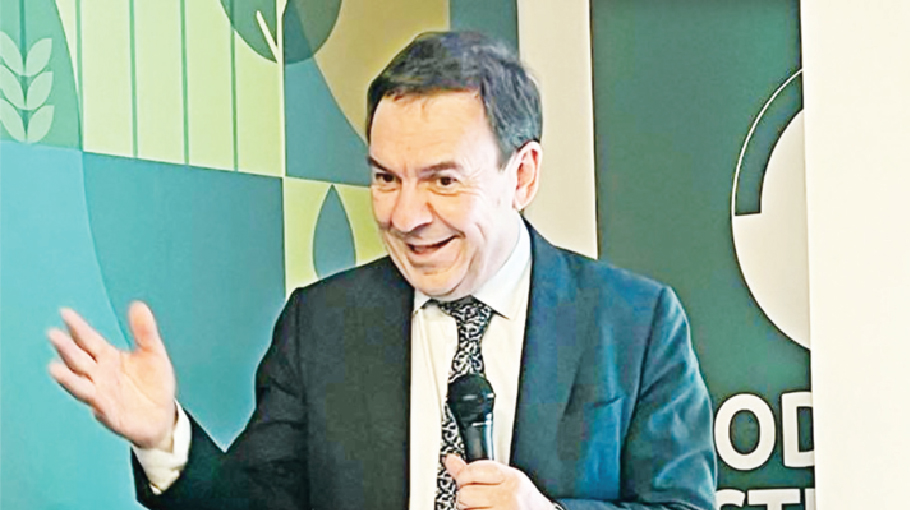Trade negotiations have key role to play in addressing food security
WTO DDG Paugam says

The WTO’s ongoing negotiations on agriculture have a key role to play in helping establish fairer and more equitable food markets which in turn would help reduce global hunger and malnutrition and support the fight against climate change, Deputy Director-General Jean-Marie-Paugam said on 4 December.
DDG Paugam spoke at a “Trading for Tomorrow” session on food security and climate change at the Food Systems Pavilion during the COP28 climate summit in Dubai. His remarks are below.
The “Emirates Declaration on Sustainable Agriculture, Resilient Food Systems, and Climate Action” comes as a new wake-up call. We need to improve the sustainability of our food systems. The climate crisis can't be “kicked down the road”. Neither can hunger and malnutrition, or the environmental challenges facing the food and agricultural sector.
“As it is clearly laid out in the “Emirates declaration”, my key message is that agricultural trade reform in the WTO is fully part of this agenda.There is no time for complacency. The challenges facing our food systems have been overwhelmingly documented.Close to 10% of the world's population is facing hunger — or between 690 million and 783 million people; at least $10 trillion are lost in “hidden costs” — due to unhealthy diets, environmental costs, poverty and undernutrition”, Paugam added. He said markets for food and agriculture remain highly distorted. Current policies incentivise unsustainable production and consumption patterns, especially in the absence of adequate environmental regulations. The Organisation for Economic Cooperation and Development (OECD) has just released new numbers showing the scale of the challenge.
The distortions on food markets are compounded by those in the energy sector. Some WTO members have highlighted the particular importance of fossil fuel subsidies in undermining progress towards environmental goals.
Price spikes affecting people in food-importing countries may be aggravated by unjustified export restrictions.
Consumers on low incomes, and vulnerable countries, are among those shouldering the additional burden of these policies. At the same time in many countries, poor consumers lack adequate safety nets. And governments are underinvesting in the types of support that can boost farm productivity, sustainably, without distorting markets.



